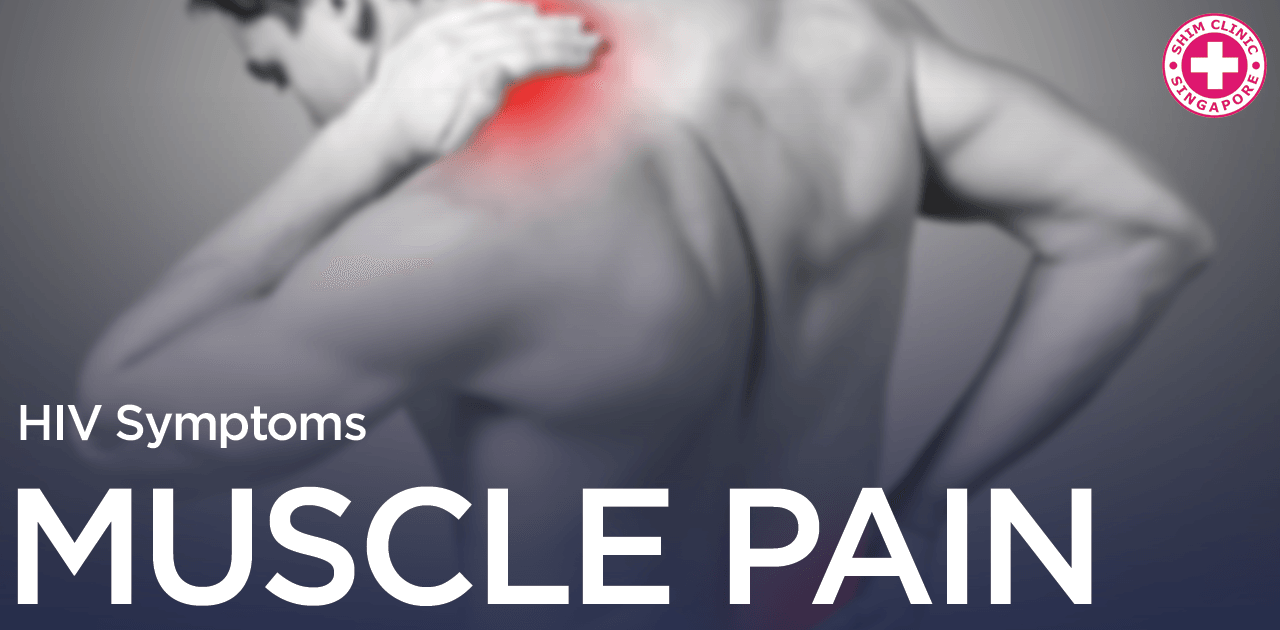There are 3 stages of HIV. The most common causes of muscle pain are tension stress overuse and minor injuries.
Some people with HIV dont have any signs or symptoms of HIV infection but those that do may have them they include mononucleosis-like or flu-like symptoms.

Hiv muscle pain. Some factors that can cause pain. The most common causes of mild headaches include muscle tension flu-like illness and side effects of HIV drugs. Several studies have shown that vitamin D deficiency is a common problem in people with HIV so it is very important to consider vitamin D deficiency in anyone who has developed muscle weakness and pain.
These symptoms which may include fever rash and muscle aches go away after a few weeks but the virus isnt gone. This pain can range from mild to severe depending upon the patients age and stage of HIV in the body. That can cause intense pain.
Neuromuscular Disorders A wide range of peripheral nervous system disorders develop in patients with HIV infection leading to pain sensory symptoms and muscle weakness Table 1. ARS is often mistaken for the flu mononucleosis or another viral infection even syphilis or hepatitis. There is a wide range of HIV-associated muscle diseases starting with the marked muscle aches myalgias often seen at the time of seroconversion.
Muscle and Joint Pain Since HIV follows a slow growth if continued to be monitored and suppressed with drugs many times even a normal muscle or joint pain can become stressful. It is important to examine the patient to determine whether weakness accompanies the pain and whether the pain is generalized or localized to one muscle group. HIV-infected patients may present with muscle pains.
Multiple studies in HIV-negative people have shown that deficiency of vitamin D can cause serious muscle weakness and associated musculoskeletal pain involving the back hips or lower limbs. HIV human immunodeficiency virus destroys important cells that fight disease and infection which weakens a persons immune system. Therefore HIV infection should be considered if there is a sudden onset of muscle and joint pain in individuals who have been exposed to HIV.
HIV Muscle Pain Singapore. Joint Muscle and Bone Pain This pain can also be mild to severe. Fatigue can be both an early and later sign of HIV.
Nevertheless 50-70 percent of HIV patients complain of muscle and joint pain at early stages of HIV infection. Nerve pain is the most common pain when you have HIV. About a third of HIV patients have some myalgia or fibromyalgia which also includes joint pain.
This type of pain is usually localized affecting just a few muscles or a small part of your body. The HIV itself. Achy muscles joint pain swollen lymph nodes.
Acute HIV infection can cause symptoms of illness but then the virus will cause no symptoms for years. Many of the symptoms are the same including pain in the joints and muscles and swollen lymph glands. 1 2 3 4 5 Of course patients also are susceptible to the same.
Signs and symptoms begin around seven or eight years after HIV infection. Non-medicinal treatment of HIV pain Acupuncture or acupressure Massage Meditation Heat and cold therapy Physical therapy Mental imagery. The predominant symptoms of fibromyalgia a chronic pain condition are widespread muscle tenderness nerve-related pain crippling fatigue and cognitive dysfunction dubbed fibro fog Some people with this illness have joint aches and sometimes minor joint swelling.
Moderate or severe headaches can be caused by sinus pressure tooth infections brain infections brain tumors bleeding in the brain migraines or strokes. As in HIV-negative patients nonsteroidal drugs and antidepressants can help. The virus can damage nerves throughout your body.
Both primary HIV-1-associated nerve disorders and those secondary to opportunistic processes are well described. Localized pain may be a sign of polymyositis whereas generalized pain suggests a systemic process. People living with HIV may experience chronic pain because of the infection or the medications that treat it.
HIV-infected patients are susceptible to a wide spectrum of HIV-associated neuromuscular and myopathic conditions. Systemic muscle pain pain throughout your whole body is more often the result of an infection an illness or a side effect of a medication.



